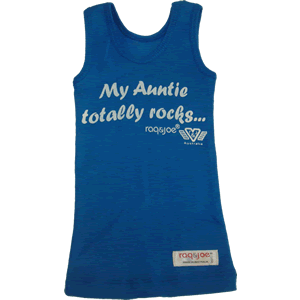 I hate it when friends quibble, and it’s worse when it happens in front of a public on whom each relies for professional sustenance. Today’s case in point: PR Newser’s Joe Ciarallo cited Melanie Notkin (@savvyauntie) as an example of the confusion created by the FTC’s newly enacted social media guidelines (to disclose paid sponsors).
I hate it when friends quibble, and it’s worse when it happens in front of a public on whom each relies for professional sustenance. Today’s case in point: PR Newser’s Joe Ciarallo cited Melanie Notkin (@savvyauntie) as an example of the confusion created by the FTC’s newly enacted social media guidelines (to disclose paid sponsors).
Mr. Ciarallo follows Ms. Notkin on Twitter. (Who doesn’t?) Between Black Friday and Cyber Monday, he noticed a number promotional Tweets from this savvy auntie. Some did not disclose the commercial relationship Ms. Notkin has with her tweeted subjects. Some did.
Well, given that paid sponsorship drives Ms. Notkin’s social media brand’s business model, the notion that she has done something unethical did not sit very well with her. If you ever met Melanie, and I have a few times, one would know that she has high ethical standards. Nonetheless, the allegation caused a firestorm in the comments section of PR Newser’s post. Ms. Notkin writes:
“Your article is now on the web, and potential sponsors wanting to work with me will see your damaging reporting and if they don’t read these comments, will not want to work with me. That’s potentially very damaging to me, my business and my reputation.”
It’s less a question of Ms. Notkin’s ethics, which again are above reproach, and more about what exactly satisfies the FTC’s call for disclosure in a micro-media context? It’s easier for blogs but on Twitter, the phrase “This is a paid commercial announcement from so-and-so marketer,” alone takes 65 of those precious 140 characters. Should every promotional tweet or blog post reveal the paid underwriter? Mr. Ciarallo writes:
“I’ll stick to the facts, which is that not all of your Tweets contained disclosure. You yourself said, “I am proud to say that I disclose at least 95% of all Tweets related to a sponsor.” Why not 100%? Whether or not that is a violation of the new FTC guidelines is for them do decide, not me.”
Surely, as Ms. Notkin notes, there are many worse offenders in the social-spheres who purposely propagate for one product or another without any qualms about not disclosing their commercial relationships. Ms. Notkin writes:
“Why not spend your energy reporting on those who do NOT disclose 95% of the time instead of those of us who take disclosure very seriously.”
Good point. Separately, Ms. Notkin should also recognize that blogs and microblogs are rather ephemeral media channels, Twitter especially. Sure, we need to listen to the conversation to engage antagonists (and encourage protagonists), but in a measured way. Confrontation can sometimes work against those wishing to quell a percolating problem, i.e.,
“Give me a break. This was poor reporting, misleading to your readers, and damaging to my business and my reputation. Shame on you.”
I know MediaBistro’s blogs are popular, but this extended and colorful comment string probably precipitated this blogger’s interest in the story.
Full disclosure: Ms. Notkin and I first crossed paths when she worked in marketing at The New York Times, a client of my agency’s at the time.